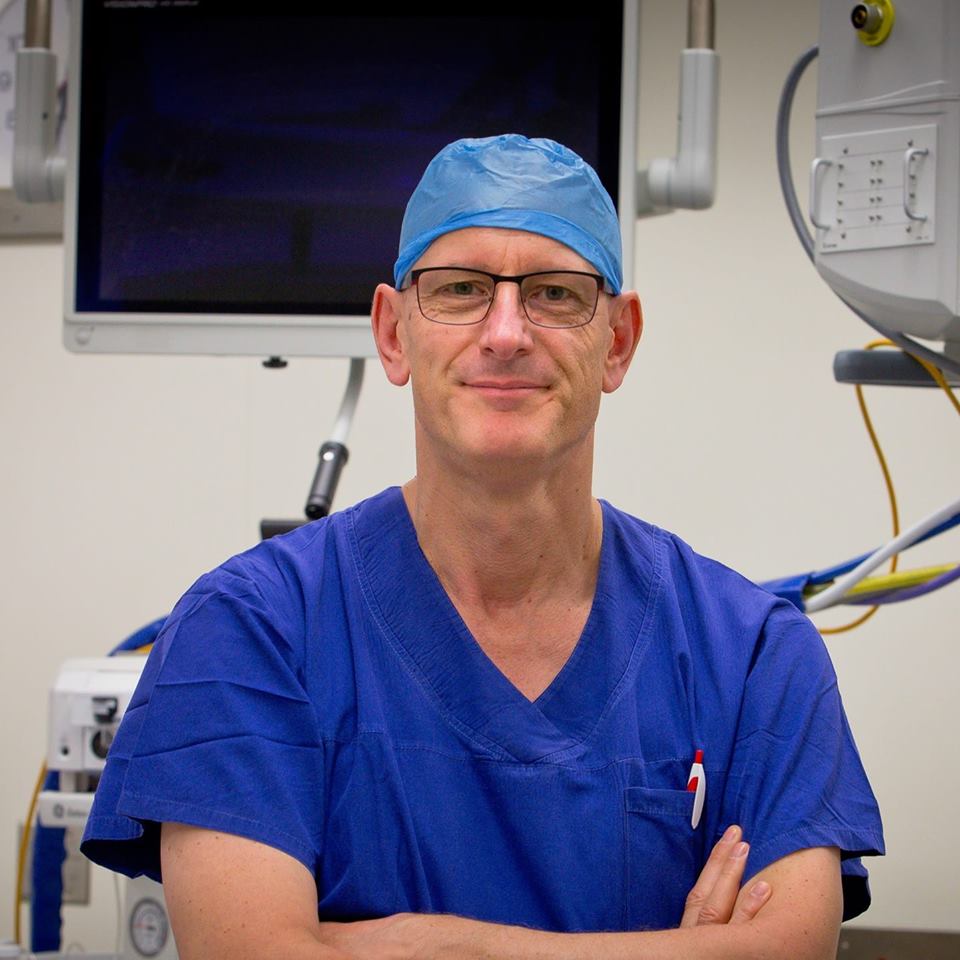Professor Obermair’s double life [interview]
Professor Andreas Obermair has been the head of research at QCGC Research since 2003, but he leads a double life. In this interview, we ask Professor Obermair about research, surgery and his inspiration for both.
Q: Professor, you spend 50 per cent of your time as a gynaecological oncologist, treating women with gynaecological cancer, and the other 50 per cent researching better ways to do this, is that right?
A: Yes, I spend half the week seeing patients and operating, run a busy private practice and spend the other half of the week in research. I probably spend more than 50 per cent of my time on research because I don’t count the hours on weekends. I never stop thinking about research, nor do I want to.
Q: If you had to choose one, which would it be?
I couldn’t see myself doing one without the other. The two parts need each other. As a surgeon, you are a problem solver and you need more than one way to approach a problem. I am not someone who follows the rules, I want to create them and to do this you need evidence from research.
When conducting research, you need to understand how it will be applied. On the other hand, if you just treated patients without any hope of improving that treatment, it would be depressing.
Q: There is so much time, energy and money involved in trials and you cannot do it all. How do you decide what to pursue in your research?
A: You have to be very careful to select the right options – the trials where patients and surgeons benefit the most. We only pursue clinical trials in surgery, which not a lot of research centres do. This means we decline trials to do with medication, which are usually funded or industry sponsored.
To start a research project, first you need the idea and then there’s a lot of work involved in creating partnerships and gaining support from stakeholders. Then you have to come up with at least 30 per cent of the funding before you can begin to ask others for financial support.
We take on what other people describe as ambitious projects, like the LACE trial, which people said was too hard and yet we have successfully completed. Or the feMMe trial, which is the first randomised trial of its kind. You need a resilient team to do this. You need a team that believes that all the time and pain involved in completing a trial is worth it.
Q: You recently presented the results of the LACE trial at the International Gynaecological Cancer Society meeting in Portugal. What was that like?
A: It was incredible. It took a very long time, over 15 years, to be able to stand up and give the medical community a definitive answer about the LACE trial. Finally, we could show them the evidence confirming that the standard treatment for endometrial cancer should be laparoscopic (key-hole) hysterectomy, not the traditional, open abdominal approach. You rarely get this opportunity in research. At the end of the day what we want is real answers that we can apply in treatment.
Q: Professor Obermair, as a leader yourself in the treatment of gynaecological cancer, who is your inspiration?
A: In surgery, my inspiration is Professor Tony McCartney, who I had the privilege of training with in Perth. He was the doyen of laparoscopic surgery in Australia and he inspired and trained many gynaecological oncologists. While Tony taught me technique, he also taught me about the concept of surgery – that 50 per cent of it is in your hands and 50 per cent in your head.
In 2002, I remember presenting to Tony the case of a patient who needed a hysterectomy to treat endometrial cancer. He said to me, “You need to decide if you are a laparoscopic surgeon and if so, you do 95 per cent of your surgery laparoscopically and only use open abdominal surgery for those cases where it is ineffective to do so. On the other hand, if you decide to focus on open abdominal surgery, then you will do most of your cases that way. Now, which surgeon are you?” This taught me that a surgeon has to choose his/her mindset first. The mindset and which surgeon you truly are will determine clinical outcomes such as complication rates.
Q: How about your inspiration in research?
A: In research, my inspiration is my personal experience of being in a hospital. We need to improve this experience and we need more evidence to do so. Here’s an example. In 2006 we did an important trial in ovarian cancer and we established that if you switch the order of chemotherapy and surgery, the complications from surgery drop considerably. This led to changes in treatment that have saved hundreds of thousands of women complications from surgery.
Q: Your surgical and research workload is demanding. When you find a moment to relax what do you like to do?
A: I don’t feel the need to switch off from my work – it’s my passion. But sometimes I do need time to catch up with sleep and exercise – to give my body a break. I have a great family – a wife and three girls – and I enjoy spending time with them. Last month when I was in Portugal I took some leave to go hiking. That was a great experience, a change from routine and a chance to get outdoors, exercise and reflect.
If you would like to read more about Professor Obermair please visit our website.

